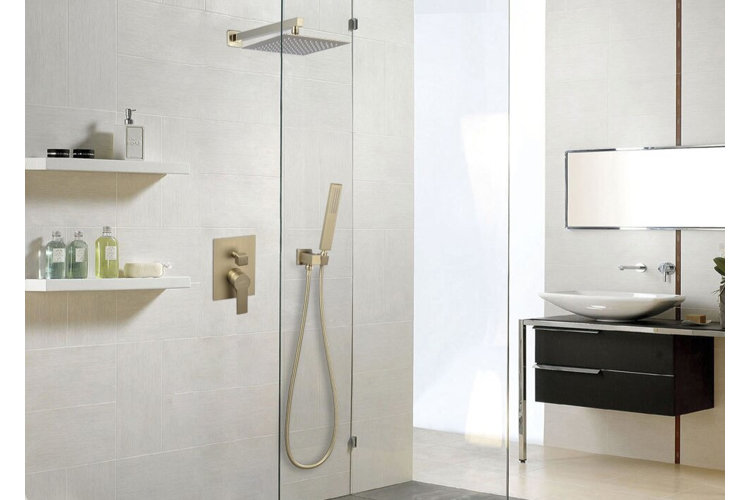What Is a Shower Valve?
Master water control to enhance your shower experience.
The shower is the ultimate space for cleansing and rejuvenation, made possible thanks to the shower valve. This small yet essential shower component plays a big role. So, what is a shower valve? It is the device that controls the shower’s water pressure and warmth.
Typically located behind the shower handle, valves combine hot and cold water to help you reach an ideal temperature while maintaining a strong water flow. They are crucial for an array of reasons, like maintaining safety and comfort while showering. Shower valves prevent both burns and unnecessary cold shocks thanks to their temperature-regulation capabilities, and provide consistency in pressure to guarantee a dependable water flow every time you shower – they are what make a relaxing shower experience possible.
Types of Shower Valves
Now that you know what a shower valve is, it’s time to browse different types of shower valves to decide what your space needs. Installing a combination of valves is possible so that you don’t have to choose between the special features of each, like pressure control or temperature regulation. Shower valves come in a variety of sizes, shapes, and functions, including:
- Pressure-balancing valves – designed to maintain consistent water pressure
- Thermostatic valves – designed for temperature control, allowing you to accurately adjust the shower to your chosen temperature.
- Diverter and transfer valves – designed to divert water flow between multiple shower heads.
Check out Types of Shower Valves for more information about each option. By understanding the different types of shower valves, you can most accurately determine which your bathroom needs.
Signs Your Shower Valve Needs Replacing
Wondering if your shower valve needs replacing? Here are a few signs to be on the lookout for.
- Inconsistent Water Temperature: If you notice the water temperature alternating between hot and cold extremes without your adjustment, your shower valve may not be properly operating.
- Weak Water Pressure: Low or increasingly weak water pressure can be indicative of a dysfunctional valve in need of replacing.
- Shower Leaks: If you notice consistent leaking or water dripping when your shower is off, it may be time for a new valve.
- Difficulty Adjusting Water Temperature: If the water just doesn’t seem to reach your desired temperature when twisting your shower handle, consider replacing the valve.
How to Choose the Right Shower Valve for Your Bathroom
Selecting the correct valve for your shower is an important step in guaranteeing comfort and safety. Compatibility with your shower is the most crucial element to consider. The model of your current shower water valve should be listed on the trim plate attached to the handle – use this as a guide when browsing new valve selections. Next, determine your top priorities. Is precise temperature control your main focus? If so, be sure to explore thermostatic valves. Interested in a water flow that alternates between shower heads? Your best bet is browsing diverter valves. No matter the case, determine what you hope to accomplish to help guide your purchase.
Tip!
Ready for installation after selecting your new shower water valve? Browse our guide on How to Replace a Shower Valve for step-by-step instructions.
